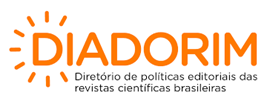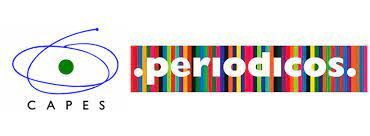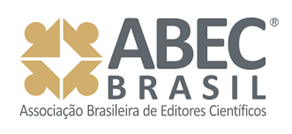A CIÊNCIA DOS CHEIROS: UMA SEQUÊNCIA DE ENSINO INVESTIGATIVA
DOI:
https://doi.org/10.22407/2176-1477/2024.v15.2545Palavras-chave:
Olfação, Órgão do sentido, Sistema nervoso, Perfume, BNCCResumo
A implantação da Base Nacional Comum Curricular trouxe desafios para os docentes, no sentido de organizar novos itinerários formativos e definir formas de abordar os conteúdos selecionados, em especial no ensino de Ciências. Nesta perspectiva, apresentamos o produto educacional fruto de uma dissertação de mestrado profissional em ensino de ciências, que disponibiliza a sequência de ensino investigativo denominada Ciência dos Cheiros. De natureza qualitativa, objetivo exploratório e envolvendo um estudo de caso, a pesquisa desenvolveu e aplicou uma sequência didática investigativa (SEI) tendo como tema gerador os perfumes, que foram usados para contextualizar a interação do sistema nervoso e os órgãos dos sentidos, destacando a olfação. A temática foi conduzida em um enfoque interdisciplinar e investigativo envolvendo conceitos da biologia e da química, com a SEI apresentando cinco etapas com metodologias e recursos didáticos diversificados, como leitura, debate, visita virtual a museu, modelos didáticos e experimento, visando promover a problematização e a relação dos conteúdos abordados com o cotidiano dos alunos. A aplicação da SEI ocorreu em uma turma de sexto ano do ensino fundamental, atendendo seu objetivo, com as atividades contribuindo para o ganho conceitual dos alunos sobre os temas abordados, mas também auxiliando na leitura e interpretação de textos, e no trabalho participativo e em grupo. O produto educacional, além da sequência de ensino investigativo, é composto por questões teóricas envolvendo a BNCC, ensino por investigação e interdisciplinaridade, dentre outros temas abordados na pesquisa, de modo a dar suporte aos docentes para utilizarem a SEI proposta em suas turmas.
Referências
AMORIM, A. C. R. de.; CICCILLINI, G. A; MEGID NETO, J. Órgãos do Sentido: uma metodologia alternativa de ensino. Ensino em Re-vista, v. 3, n. 1, p. 31-39, 1994.
ANASTASIOU, L. G. C.; ALVES, L. P. Estratégias de ensinagem. In: ANASTASIOU, L. G. C.; ALVES, L. P. (Org.). Processo de ensinagem na universidade: pressupostos para as estratégias de trabalho em aula. 5 ed. Joinville: Univille, 2015.
BRASIL. Base Nacional Comum Curricular, 2017. Disponível em: http://basenacionalcomum.mec.gov.br/.
BUSHDID, C., MAGNASCO, M. O.; VOSSHALL, L. B.; KELLER, A. Humans can discriminate more than 1 trillion olfactory stimuli. Science. v. 343, p. 1370-1372, 2014.
CAFIERO, D. Leitura como processo: caderno do professor. Belo Horizonte: Ceale/FaE/UFMG, 2005.
CARVALHO, A. M. P. de. Fundamentos teóricos e metodológicos do Ensino por Investigação. Revista Brasileira de Pesquisa em Educação em Ciências. v. 18, n. 3, p. 765-794, 2018.
DELIZOICOV, D.; ANGOTTI, J. A.; PERNAMBUCO, M. M. Ensino de Ciências: fundamentos e métodos. São Paulo: Cortez, 2018.
DIAS, S. M.; SILVA, R. R. Perfumes: uma química inesquecível. Química Nova na Escola, n.4, p. 3-6. 1996.
FAZENDA, I. C. A. Práticas interdisciplinares na escola. São Paulo: Cortez, 2013.
FREIRE, P. Pedagogia do Oprimido. Rio de Janeiro: PAZ E TERRA, 2019.
GIL, A. C. Como elaborar projetos de pesquisa. São Paulo: Atlas, 2002.
HAYDT. R. C. C. Curso de Didática Geral. São Paulo: Ática, 2006.
LÜDKE, M. ANDRÉ, M. E. D. A. Pesquisa em Educação: Abordagens qualitativas. Rio de Janeiro: E.P.U., 2020.
MAIA, N. B. Viajando pelos sentidos. Revista Eletrônica do Jornalismo Científico. São Paulo. 2007. Disponível em: https://www.comciencia.br/comciencia/index.php?section=8&edicao=28&id=326. Acesso: 19 de nov. 2023.
PICCININI, C; ANDRADE, M. C. O ensino de Ciências da Natureza nas versões da Base Nacional Comum Curricular, mudanças, disputas e ofensiva liberal-conservadora. Revista de Ensino de Biologia da SBEnBIO, v. 11, n. 2, p. 34-50, 2018.
POSAR, A., VISCONTI, P. Sensory abnormalities in children with autism spectrum disorder. J Pediatr (Rio J).2018.
ROCHA, R., FLORA, A. Cheirar. São Paulo: Moderna, 2017.
RODRIGUES, M. H. S., ALMEIDA, A. C. P. C. Espaços não-formais de ensino: perspectivas para a formação inicial de professores. Revista Educação, Cultura e Sociedade. v. 10, n. 2, p. 224 – 239, 2020.
SASSERON, L. H. Ensino de Ciências por Investigação e o Desenvolvimento de Práticas: Uma Mirada para a Base Nacional Comum Curricular. Revista Brasileira de Pesquisa em Educação em Ciências, v. 18, n. 3, p. 1061–1085, 2018.
SOUZA, D. F., RODRIGUES, A. L. S. Aprendendo Ciências por meio da contação de histórias. Conexão ComCiência, v. 1, n. 2, 2021. Disponível em: https://revistas.uece.br/index.php/conexaocomciencia/article/view/4852. Acesso em: 15 jul. 2023.
VIEIRA, V.; BIANCONI, M. L.; DIAS, M. Espaços não-formais de ensino e o currículo de ciências. Revista Ciência e Cultura. v. 57, n. 4, p. 21 – 23, 2005.
Downloads
Publicado
Como Citar
Edição
Seção
Licença
Copyright (c) 2024 Flávia Fernanda Ferreira Faria, Sheila Pressentin Cardoso

Este trabalho está licenciado sob uma licença Creative Commons Attribution-NonCommercial 4.0 International License.
O autor responsável pela submissão representa todos os autores do artigo, e se compromete a enviar como documento suplementar uma carta de consentimento com a assinatura de todos os autores informando que tem a permissão para a submissão do texto assim como assegura que não há violação de direitos autorais e nem qualquer tipo de plágio (incluindo autoplágio).









